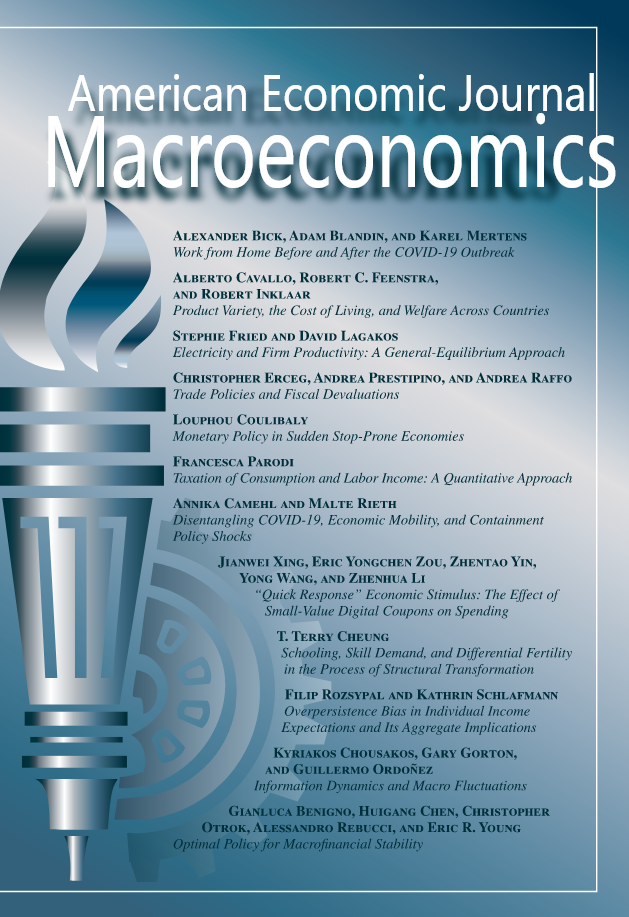企业进入和退出与总量增长
IF 5.7
1区 经济学
Q1 ECONOMICS
引用次数: 1
摘要
将Foster、Haltiwanger和Krizan(2001)的分解方法应用于智利和韩国的工厂级制造业数据,我们发现,在GDP快速增长期间,工厂的进入和退出占总生产率增长的更大比例。为了分析这种关系,我们在Hopenhayn(1992)的基础上建立了企业进入和退出的模型。当我们在校准模型中引入降低进入成本或降低技术采用壁垒的改革时,我们发现,随着GDP的快速增长,FHK分解中的进入和退出条件变得更加重要,就像智利和韩国的数据一样。(jel d24, e23, l13, l60, o14, o32, o47)本文章由计算机程序翻译,如有差异,请以英文原文为准。
Firm Entry and Exit and Aggregate Growth
Applying the Foster, Haltiwanger, and Krizan (2001) decomposition to plant-level manufacturing data from Chile and Korea, we find that the entry and exit of plants account for a larger fraction of aggregate productivity growth during periods of fast GDP growth. To analyze this relationship, we develop a model of firm entry and exit based on Hopenhayn (1992). When we introduce reforms that reduce entry costs or reduce barriers to technology adoption into a calibrated model, we find that the entry and exit terms in the FHK decomposition become more important as GDP grows rapidly, just as they do in the data from Chile and Korea. (JEL D24, E23, L13, L60, O14, O32, O47)
求助全文
通过发布文献求助,成功后即可免费获取论文全文。
去求助
来源期刊

American Economic Journal-Macroeconomics
ECONOMICS-
CiteScore
8.20
自引率
1.70%
发文量
58
期刊介绍:
American Economic Journal: Macroeconomics focuses on studies of aggregate fluctuations and growth, and the role of policy in that context. Such studies often borrow from and interact with research in other fields, such as monetary theory, industrial organization, finance, labor economics, political economy, public finance, international economics, and development economics. To the extent that they make a contribution to macroeconomics, papers in these fields are also welcome.
 求助内容:
求助内容: 应助结果提醒方式:
应助结果提醒方式:


